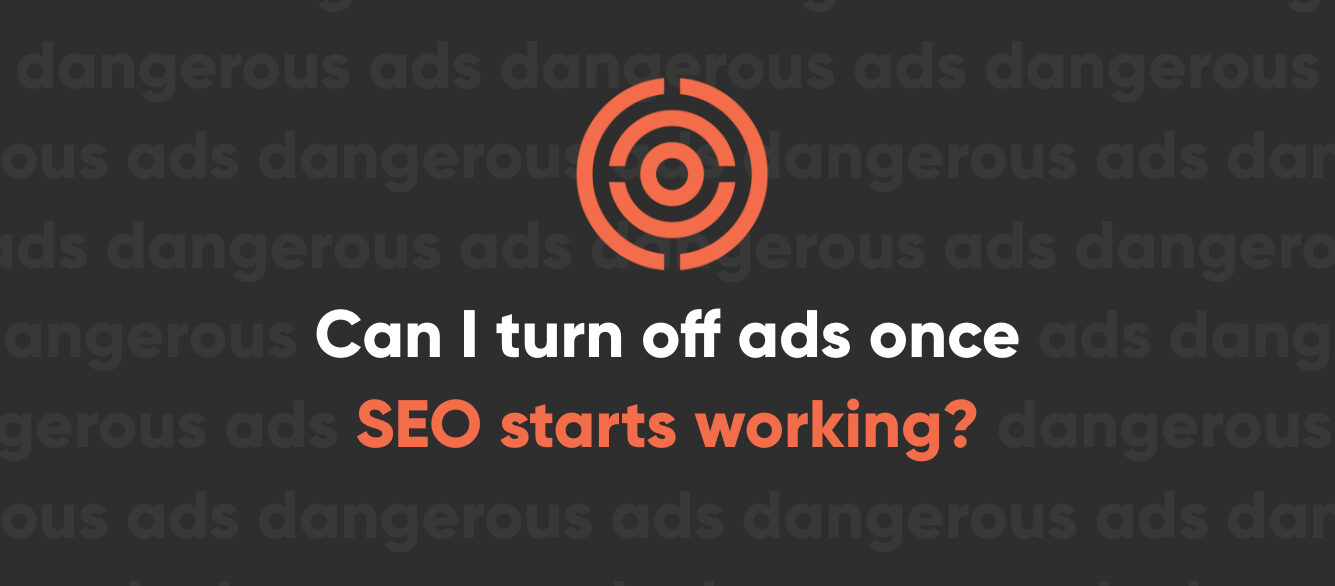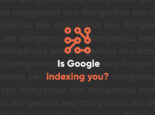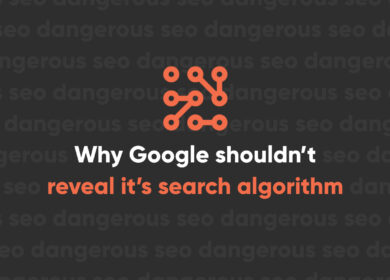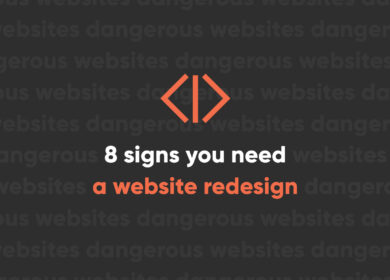
Can I Turn Off Paid Ads Once the SEO Starts Working? Internet Marketing Mysteries

In the battle of paid versus organic, which side are you on?
There’s a common misconception in the world of internet marketing that paid advertising and SEO are rivals. Many website owners believe Google AdWords, PPC, and other forms of digital ads are just temporary solutions while they wait for the SEO to "kick in."
It’s not surprising that business owners believe this. After all, many marketing agencies preach it.
"Oh, sure, you can do paid ads for a month or two. But once you’re number 1 in the search engines, you won’t need to do that anymore. Why pay for those clicks when you can get them for free?"
I know agencies say this. I know from firsthand experience. Heck, I’ve even said it. But it’s the completely wrong way of thinking about things. Yeah, it’s a sales pitch, but it’s mostly just bad advice. It’s what many website owners want to hear. Because, after all, nobody clicks on those ads. I mean, I’ve never clicked on an ad in my entire life! I’m sure you haven’t either, right?
If you believe that, I have a bridge to SEO heaven to sell you. Millions of people click on ads. Billions of ads get clicked. If they didn’t, Google would go out of business. But that’s beside the point. What business owners need to understand (and many so-called SEO experts should try harder to understand this as well) is that SEO and PPC aren’t rivals. They are harmonious partners. They are two equally important internet marketing strategies that shouldn’t—and don’t—compete against each other. Rather, they work together to create a stronger, more reliable strategy for your site.
But Why Pay for Clicks When I Can Be Number 1 in Organic?
Everyone loves to hear an SEO company say they’ll get you to number one. It sounds wonderful. You’ll be at the top of the search engines—guaranteed—for as long as Al Gore keeps the internet up and running.
But that’s not how it works. There are no "guarantees" when it comes to SEO. Algorithms change almost daily. Major updates can derail your rankings. Personalized and intuitive search can make your "number one" ranking irrelevant.
In other words, organic rankings are not stable enough to be the foundation for your business. Why would you want your business strategy to depend entirely on something you can’t control?
Here’s the thing: you might be able to get to that magical number 1 in organic, but even if you do, there will almost always be ads above you. On mobile, your organic ranking might not even be visible without scrolling. Being the top organic result means almost nothing if your potential customers are only clicking on those ads.
No Ads Doesn’t Always Mean More Organic Clicks
Organic rankings do get clicks, and they get a lot of them. But so do ads. Many website owners have the theory that if the ads go away, then the organic rankings will get more clicks. This is not necessarily true. Let’s assume you are running an ad for a keyword where you are also number one organically. Thinking it makes no sense to spend money for a click that should rightfully be yours for free, you pause your ads. You’ll still get that click anyway, right?
Not so fast. In a 2012 study conducted by (ahem) Google, only 50% of the ad clicks in the above case would be replaced by an organic click. So you would get more organic clicks if you paused your ads, but you wouldn’t get all of them. You’d actually be losing a significant number of potential customers. And that’s just assuming you are at the top of the organic result. If you are ranking 2-4, you will lose 82% of those clicks. Ranked 5 or further back? Now you’re losing 96% of those ad clicks. Sure you want to pause those ads?
Now, you may want to take these numbers with a grain of salt. After all, they are from Google (who wants you to advertise), and they are averages (which may not hold true for your industry). Google even recommends within the conclusion of this very study that your results may differ (Results not typical. Actual results may vary. Use at your own risk.)
Here’s the real conclusion of the study: If you pay for ads, you will get more clicks. Of course, clicks aren’t leads or sales. But you can’t have leads or sales if you don’t get traffic to the site. If ad clicks and organic clicks are both bringing targeted traffic to your site, why would you want to cut one out of the equation?
Then Why Not Just Pay for Ads and Skip the SEO?
Because some people actually don’t click on ads. Because you might not have the budget to run your ads all the time. Because having your site show up twice (or even three times if you’re in the local map pack) in the search results is better than once.
It’s not about choosing one or the other. It’s about creating a harmonious relationship between the two. You may not like the idea of paying for clicks, but as long as it is paying off for your business, it’s a smart strategy. This doesn’t mean every website needs both paid ads and SEO, but it should never be about choosing just one strategy. That’s not how business works.
Don’t Put All Your Marketing Eggs in One Basket
Internet marketing is not SEO. SEO is a piece of the puzzle, not a standalone solution for all your problems. Internet marketing is SEO, paid ads, email, content, social media, conversion optimization, and more. These things work together to bring in more leads, more customers, more revenue.
Imagine this scenario:
You launch a brand new website. While you are waiting for the SEO to "kick in," you decide to pay for search ads. Two months after your site launches, you see yourself creeping up in the organic search results. You even have a few top three organic rankings for your biggest keywords. You’ve been seeing success with your paid ads. In fact, your ROAS (return on ad spend) is 200%. But you decide to shut off ads because you are going to be getting all those organic clicks now. And you do get organic clicks. But guess what happens when those ads go away? Your orders go down. You have fewer customers. You have less revenue. Why? Because you cut off one of your revenue streams—one that was working for you.
As long as the ads are paying for themselves, why shut them off? It’s never a sound business strategy to stop doing something that’s working.
At this point, a business owner might say, "But I can only afford one. I can’t pay for SEO and PPC."
If this is a true statement, then it’s only true because your campaigns either aren’t optimized for performance or because you aren’t willing to put in the resources required to make your business grow. Don’t cut off one arm to save the other.
Conclusion
No aspect of marketing should be looked at in a vacuum. No single strategy should be used with an all-or-none mindset. Instead, you should allow individual facets of internet marketing to work together in a symbiotic relationship. You can have your ads and your organic clicks too.
Of course, if the ROI isn’t there, then you need a new plan. But most of the time, you’ll find paid ads and SEO go quite well together. It’s almost like they were made for each other.
This post is part of Internet Marketing Mysteries, a weekly column addressing actual client questions related to SEO, analytics, website best practices, and any other topic connected to internet marketing. Have a question you’d like to see tackled in a future post? Let us know in the comments.

Nate Tower
Nate Tower is the President of Perrill and has over 12 years of marketing and sales experience. During his career in digital marketing, Nate has demonstrated exceptional skills in strategic planning, creative ideation and execution. Nate's academic background includes a B.A. with a double major in English Language and Literature, Secondary Education, and a minor in Creative Writing from Washington University. He further expanded his expertise by completing the MBA Essentials program at Carlson Executive Education, University of Minnesota.
Nate holds multiple certifications from HubSpot and Google including Sales Hub Enterprise Implementation, Google Analytics for Power Users and Google Analytics 4. His unique blend of creative and analytical skills positions him as a leader in both the marketing and creative worlds. This, coupled with his passion for learning and educating, lends him the ability to make the complex accessible and the perplexing clear.



